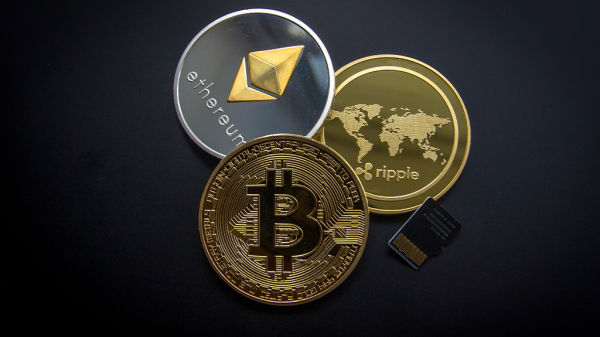There are many reasons a small business owner, freelancer, or entrepreneur might consider accepting cryptocurrencies as payment.
One of the most noteworthy is the access to the more than 2.3 million people who used bitcoin as payment last year alone – that’s a growing pool of people who want to pay with a decentralized means of digital currency. Many have gravitated to cryptocurrencies as some believe they have proven to have clearer policies compared to traditional banks, less hidden fees, and more security against chargebacks.
More importantly than why though (especially in determining if its worth it to you and your business) is how you can start accepting bitcoin and other cryptocurrencies for your product or service.
Just like PayPal or credit card payments, you’ll need to first integrate a crypto payment processor wherever you plan to accept payment. This can be from your phone, your Shopify website, or your independently designed website. When deciding on which processor (and there are plenty to choose from), it’s important first understand the two types of cryptocurrency services available to you.
Custodial Wallets – These kind of wallets work like a bank do, in that they serve as a third party entity in control of your assets. Custodial services store your private keys, which is the secret alphanumeric code paid with your public keys. When you receive your crypto payments, they go into a wallet, where you request your money by withdrawal. These are popular for freelancers who are interested in converting cryptocurrency to traditional currency. Another advantage for this kind of wallet is you can contact your custodian’s customer service for access to your account if you’ve lost your password. The major disadvantages are that you don’t have complete control of your funds; so your wallet can be frozen by the custodian in case of maintenance, or stolen by hackers if they get into the processor.
Non-Custodial Wallets – These wallets can exist on paper, desktop, hardware, or mobile and are called cold wallets. No matter where it is stored, it is defined as an offline wallet provided for storing bitcoins. Your information is usually stored on a platform not connected to the internet, offering an added level of protection against cyber hacks and other vulnerabilities that a system connected to the internet is vulnerable to. If you don’t already have one of these cold wallets, you’ll need to establish one for a non-custodial processor. These kind of processors do not store or protect your private keys’ information, which allows the user complete control over their coin which can be important to you if you are accepting large amounts of money you want to keep safe, or you want to keep certain information very private. If you lose your private keys though, you lose your coin also since there’s no one to call and retrieve, like with custodial processors.
Once you understand the type of processor is best suited for your business, it’s easier to research and find processors that do exactly what you are looking for. Like I mentioned before, there are lots of different processors to choose from, but we’re going to go over a few custodial and non custodial processors to help inspire you in which direction to go
Custodial Processors:
Bitcharge: Bitcharge has the easiest instructions and interface on this entire list; so if simplicity is what you are after, start here. Instead of web integration, lengthy APIs or email invoices, all you need to start accepting cyrpto payments is a unique link they create for you. Once you have the link, you can give it to your clients however you choose, just like sending your Cash App or Venmo name. Another unique feature at Bitcharge is that they don’t require you to create new wallets for your cyrpto payments – all you have to do is add the address of your existing wallets to receive payment there. Bithcharge accepts Bitcoin, Etherum, and Litecoin, but are planning to add more to their portfolio. There are no transaction fees listed on the Bitcharge website.
Coingate: This payment processor is popular for accepting Altcoin (coins other than Bitcoin) payments, and currently accept over 40. This processor allows freelancers or entrepreneurs to accept payments in-store using an Android, iOS device, or other internet enabled devices. It’s also available as a plug-in so it can be easily integrated into your existing online store. There is a 1% transaction fee to use Coingate, with no additional monthly, registration, or support fees.
Cryptopay: Cyrptopay is a crypto payment processor that provides a guaranteed exchange rate, and also charges a flat 1% transaction fee. With this processor, freelancers can accept Bitcoin, Litecoin, Etherum, or Ripple. This cryptocurrency settles payments daily and provides funds straight to your bank account
Bitpay: Bitpay serves merchants in over six continents and is currently integrated with several different ecommerce solutions, including Shopify. Freelancers can also accept payment from automatically generated email invoices, or in person with a smartphone or tablet. They charge a 1% transaction Fee, with no hidden fees. The only cryptocurrency they accept is Bitcoin for now.
Coinbase Commerce: Coinbase is one of the world’s biggest payment processes and is also integrated with a variety of ecommerce solutions including Shopify and WooCommerce. With this processor, you are able to instantly convert it into fiat (traditional currency) to avoid price volatility. Users with this processor are able to accept Bitcoin Ethereum, Litecoin, or Bitcoin Cash. There is no transaction fee to accept cryptocurrency with Coinbase Commerce.
GoCoin: Go Coin is another popular gateway accepting payments in Bitcoin, Bitcoin Cash, Etherum, Litecoin, Dash, and EOS. It can also be integrated into popular commerce platforms like WooCommerce. Although there is no cost to sign-up for an account with GoCoin, there is a flat 1% transaction fee for each payment you accept. The most unique factor about this processor is the one-on-one help offered for experienced and inexperienced merchants. They also help with integrating the processor, customer invoicing, and payment support.
Non-Custodial Processors
These are newer on the market so there aren’t as many non custodial options, but here are the two options:
BTCPay: This processor is a non custodial, open sourced, and self-hosted payment processor designed for the technologically and cryptocurrency inclined. This particular processor allows the merchant to be in full control with no fees, or third party control like with the aforementioned processors. Payments go directly into their cold wallet, not the processor’s wallet. There are currently no fees to use BTCPay.
Atomic Pay: Atomic Pay is a global, non-custodial cryptocurrency payment processor. They eliminate the involvement of a third party processor by allowing you to accept payments “within seconds.” Unlike the aforementioned services, Atomic Pay does not store or withhold any of your information, so you’ll need to have a cold wallet setup. Atomic Pay also boasts an API Interface that allows developers and business to integrate with their “back end systems, websites, games, mobile applications, and point of sales systems.” The processing fees are 0.9% per transaction for the personal package, 0.8% for businesses, and 0.7% for their Enterprise package.
In conclusion:
Digital currencies continue to expand globally and offers a variety of benefits to small business owners, freelancers, and entrepreneurs. No matter where your potential client is located, international or domestic, both payments are handled the same, without any clearance necessary; unlike a wire transfer payment from an international client that could take up to a week or more. Not to mention the fees are less than credit card payment fees…
Despite all these perks, I am still not a certified accountant, and am merely suggesting you take a look at your business needs and see if those more than 2.3 million potential clients can be of use to you.
Lauren Flanigan is a Staff Writer at The American Genius, hailing from the windy hills of Cincinnati, with a degree in Marketing from the University of Cincinnati. She has escaped the hills, and currently resides in Atlanta, where you can almost always find her camping at a Starbucks strategizing on how to take over the world.










































